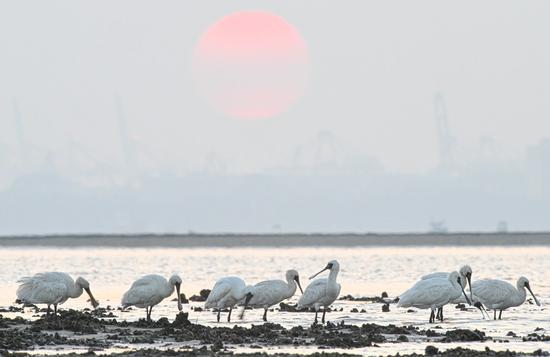
A flock of black-faced spoonbills is observed at Danzhou Bay Wetland in Danzhou, south China's Hainan Province, Dec. 13, 2022. (Xinhua/Pu Xiaoxu)
Eighteen wetlands in China were designated in 2022 as Wetlands of International Importance under the Ramsar Convention on Wetlands, the National Forestry and Grassland Administration announced Thursday on the occasion of the 27th World Wetlands Day.
The 18 new sites include Beijing Wild Duck Lake Wetland, the nine turns and 18 bends on the Greater Khingan Range, and Baima Lake Wetland in Huai'an, Jiangsu Province.
Following the expansion, the number of Wetlands of International Importance hit 82 in China, covering a surface area of 7.647 million hectares, the fourth largest in the world, according to the National Forestry and Grassland Administration.
Feb. 2 marks the World Wetlands Day, which is the date of the adoption of the Convention on Wetlands in 1971 in the Iranian city of Ramsar. The Ramsar Convention is an intergovernmental agreement dedicated to the conservation and rational use of wetland ecosystems.
This year's theme of World Wetlands Day is "It's Time for Wetlands Restoration," highlighting the urgent need to prioritize wetland restoration.
At a press conference on World Wetlands Day held in Hangzhou, Zhejiang Province, on Thursday, the National Forestry and Grassland Administration released the results of the monitoring of the ecological status of Wetlands of International Importance in China in 2022.
The results show that the ecological status of the Wetlands of International Importance in China is generally stable, the total wetland area has increased compared with the previous year, there is a good trend in water quality, and the water supply status remains stable. China's wetland biodiversity has been enriched, with 2,391 plant species recorded.
Remarkable results have been achieved in the protection and restoration of China's wetlands, and degraded wetlands in Heilongjiang, Hubei, Shandong and Hainan have been effectively restored.
In her video message to the press conference, Musonda Mumba, secretary-general of the Ramsar Convention, expressed thanks to China for its leadership role as the host country and president of the 14th Meeting of the Conference of the Contracting Parties to the Ramsar Convention on Wetlands (COP14).
Musonda expressed her appreciation for China's continuous fine-tuning of the legal and policy framework, implementation of the wetland protection law, and the national wetland protection plan (2022-2030), as well as for strengthening domestic wetland protection and management.
She said that China would lead the development of global wetland protection in the next three years.
During the 2016-2020 period, China allocated 9.87 billion yuan (about 1.47 billion U.S. dollars) from the central government to carry out 53 wetland protection and restoration projects, and more than 2,000 wetland ecological compensation projects, projects to return farmland to wetlands, as well as wetland protection and restoration subsidy projects. The restoration of 467,400 hectares of degraded wetlands has been achieved, and 202,600 hectares of new wetlands were added.
Over the past decade, China has added or restored more than 800,000 hectares of wetlands, according to the National Forestry and Grassland Administration.
China's first specialized law on wetland protection took effect in June 2022.
China became a party to the Ramsar Convention in 1992.
As an important participant, contributor, and leader of global wetland protection and restoration, China vows to fulfill its obligations under the Convention on Wetlands, continue to strengthen the preservation of wetland authenticity and integrity, implement national wetland protection planning and major wetland protection projects, bring more important wetlands into the management of nature reserves, and improve the international exchange and cooperation platform.
So far, more than 2,400 wetlands around the world have been designated as Wetlands of International Importance, also known as Ramsar Sites.
Wetlands include natural and artificial water bodies on land, like rivers, lakes, swamps, rice paddies, and some coastal areas. Known as the "kidneys of the Earth" and a reservoir of biodiversity, they can purify water and provide food and shelter to migratory birds. They are among the Earth's top stores of carbon, whose existence contributes to global efforts to reduce carbon emissions.










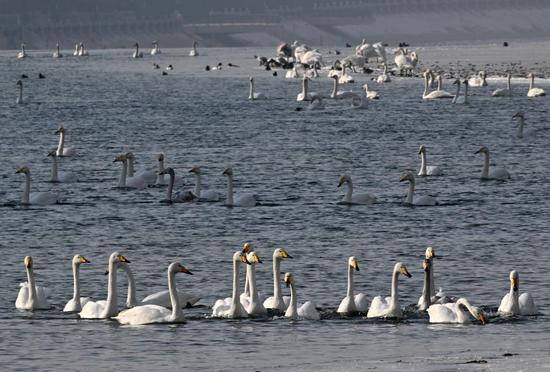


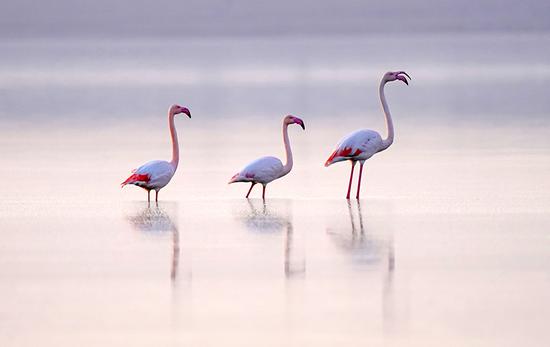

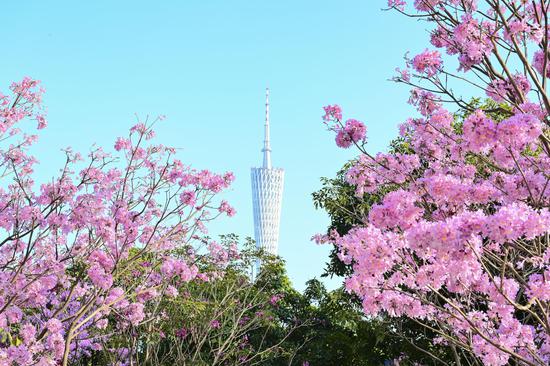


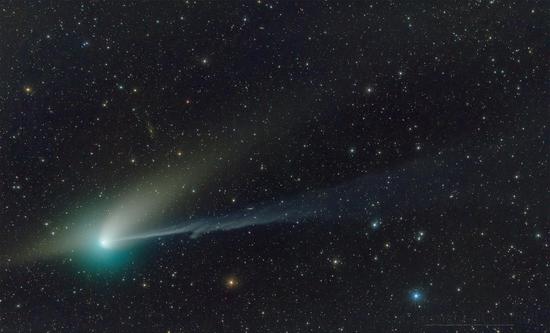
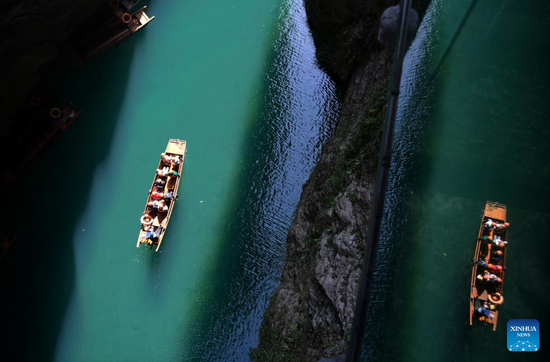














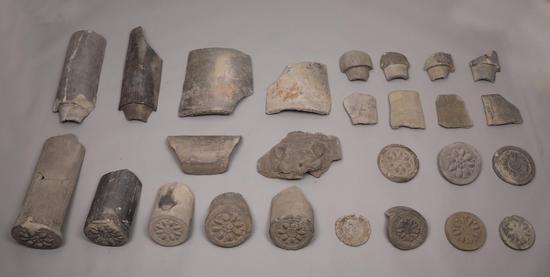



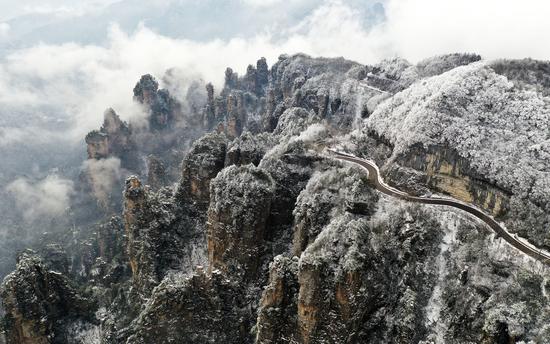



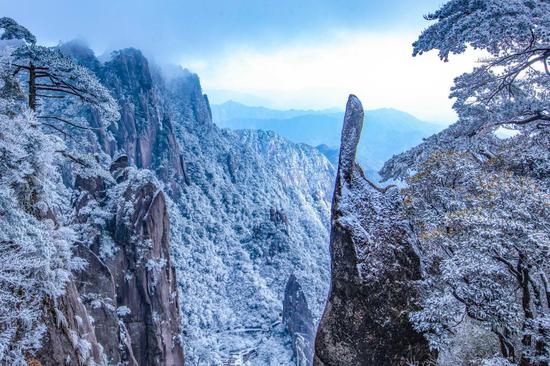







 京公网安备 11010202009201号
京公网安备 11010202009201号